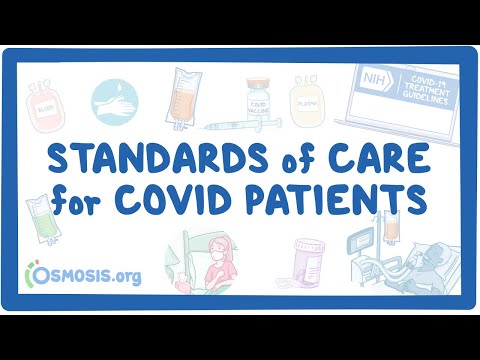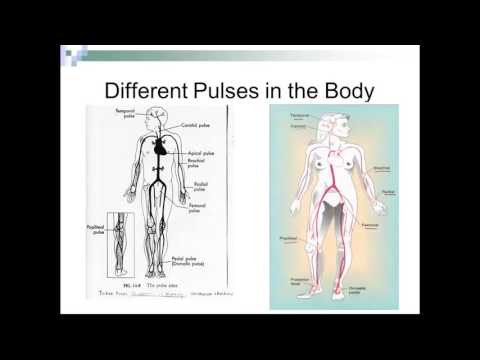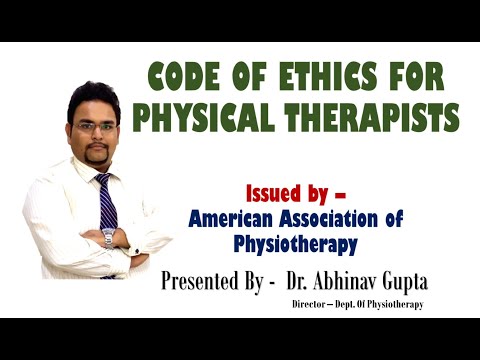Key Qualifications for Medical Assistants
Contents
- Key Qualifications for Medical Assistants
- The Importance of Medical Assistants
- The Role of Medical Assistants
- The Education and Training of Medical Assistants
- The Certification of Medical Assistants
- The Employment of Medical Assistants
- The Salaries of Medical Assistants
- The Future of Medical Assistants
- 10 Reasons to Become a Medical Assistant
- 5 Myths About Medical Assistants
Discover the key qualifications that Medical assistants must have to be successful in their roles, including both hard and soft skills.
Checkout this video:
Key Qualifications for Medical Assistants
Medical assistants play a vital role in the healthcare industry. They provide administrative and clinical support to physicians and other members of the healthcare team.
To be successful in this role, Medical Assistants must possess a number of key qualifications. They must be able to work well under pressure, handle confidential information with discretion, and have excellent organizational skills. They must also be proficient in Medical Terminology and be able to take accurate medical histories and vital signs.
In addition, medical assistants must be able to perform basic laboratory tests and minor medical procedures. They may also be responsible for scheduling appointments, handling billing and insurance paperwork, and providing patient education.
While no formal education is required to become a medical assistant most employers prefer to hire candidates who have completed an accredited program. Medical assistants who are certified by a professional organization such as the American Association of Medical Assistants (AAMA) tend to be more marketable than those who are not certified.
The Importance of Medical Assistants
Medical assistants are important members of the healthcare team. They provide administrative and clinical support to physicians, nurses and other healthcare providers. They may also be involved in patient education and care.
Medical assistants must have strong communication skills, both written and verbal. They must be able to give clear instructions to patients and follow the instructions of their supervisors. They must also be able to work well under pressure and maintain a high level of accuracy in their work.
Medical assistants must be detail oriented and organized. They must be able to keep track of patients’ medical records scheduling appointments and billing information. They might also be responsible for ordering supplies and handling medical equipment
In addition to these general skills, medical assistants need to have specific knowledge about medical procedures, terminology and equipment. They should also know how to use computers and other office equipment. Most medical assistants have at least a high school diploma or equivalent, although some positions may require postsecondary education or training.
The Role of Medical Assistants
Medical assistants play a vital role in the healthcare industry. They are the link between patients and doctors, providing essential support in clinics and hospitals. Aspiring medical assistants must have certain qualities to be successful in this career.
First and foremost, medical assistants must have excellent communication skills. They need to be able to interact with patients from all walks of life and provide them with the information they need. Medical assistants also need to be able to understand and relay instructions from doctors.
Medical assistants must also be detail-oriented and organized. They often have to keep track of patient records, schedules, and medications. In a fast-paced environment like a hospital or clinic, it is essential that medical assistants are able to stay on top of everything.
Finally, medical assistants must possess strong people skills. They often have to deal with upset or agitated patients. It is important that they are able to remain calm and professional in these situations.
The Education and Training of Medical Assistants
Education and training requirements for medical assistants vary by state, but most states require certification. Specific coursework is usually needed to sit for the certification exam, and both community colleges and vocational schools offer certification programs. Some hospitals also offer on-the-job training for medical assistants.
In order to become certified, medical assistants must pass an exam administered by either the American Association of Medical Assistants or the National Healthcare Association. These exams cover topics such as anatomy, physiology, medical terminology, and administrative skills. Once certified, medical assistants must renew their certification every few years by completing continuing education courses or re-taking the exam.
The Certification of Medical Assistants
There are several key qualifications for medical assistants. In order to work as a medical assistant it is necessary to obtain certification from an accredited institution. The medical assistant must also have a high school diploma or equivalent, and must be able to pass a criminal background check. Additionally, the medical assistant must have completed a medical assisting program that has been accredited by the Commission on Accreditation of Allied Health Education Programs (CAAHEP) or the Accrediting Bureau of Health Education Schools (ABHES).
The Employment of Medical Assistants
Employment of medical assistants is projected to grow 19 percent from 2019 to 2029, much faster than the average for all occupations. The increasing numbers of older adults—who are more likely than younger people to have chronic conditions, such as arthritis, diabetes, and heart disease—are expected to fuel demand for preventive medical services. As a result, physicians will require support from medical assistants to perform administrative and clinical duties so that they can see more patients.
The Salaries of Medical Assistants
The median salary for medical assistants in 2017 was $15.61 per hour, or $32,530 per year, according to the U.S. Bureau of Labor Statistics (BLS).* The top 10% of earners in this occupation made more than $20.39 per hour, or $42,430 annually, while the bottom 10% earned less than $11.87 per hour or $24,690 yearly.
Salaries for medical assistants vary by a number of factors including geographical location, industry and experience level. In general, those who work in larger metropolitan areas and in certain industries such as outpatient care centers tend to earn more than their counterparts who work in smaller towns or rural areas and in other industries such as physicians’ offices.* Experienced medical assistants also usually earn more than those who are just starting out in the field.
Medical assistants with additional skills and training may be able to command higher salaries as well.* For example, those who have completed a medical assistant program that has been accredited by the Commission on Accreditation of Allied Health Education Programs (CAAHEP) or the Accrediting Bureau of Health Education Schools (ABHES) may be able to earn more than those without such credentials.* Medical assistants who have certification from a professional organization such as the American Association of Medical Assistants (AAMA) may also be able to command higher salaries.* Some employers may also offer higher salaries to those with experience using electronic health records (EHRs).
The Future of Medical Assistants
The medical assistant profession is expected to grow much faster than average in the coming years. This demand for medical assistants will be driven by several factors, including an aging population, advances in medical technology, and an expanding scope of practice for medical assistants.
As the population ages, more people will need medical care. This increase in demand for healthcare services will create a need for more medical assistants. Advances in medical technology will also lead to a need for more medical assistants. As new technologies are developed, medical assistants will be needed to help operate and maintain these new machines.
Expanding scope of practice for medical assistants is another factor that will contribute to the growth of this profession. Medical assistants are increasingly taking on more responsibility and performing more duties that were once reserved for nurses and doctors. As the scope of their practice expands, so too will the demand for their services.
10 Reasons to Become a Medical Assistant
Employment of medical assistants is projected to grow 29 percent from 2019 to 2029, much faster than the average for all occupations.1 A combination of factors—including an aging and increasingly active population and advances in medical technology—are expected to lead to greater demand for preventive medical services, which are often provided by medical assistants.
As Americans live longer, healthier lives, they will continue to seek out ways to maintain their health. An aging population and advances in medical technologies will require more preventive medical services, which are often provided by medical assistants. Medical assistants complete administrative and clinical tasks in the offices of physicians, hospitals, and other healthcare facilities. Their duties vary with the location, specialty, and size of the practice.
In small practices, medical assistants usually perform both administrative and clinical duties. In larger practices, they may specialize in either administrative or clinical work; some may also take on specialized tasks such as billing or coding insurance forms. No matter their primary responsibilities, all medical assistants must be able to perform basic administrative tasks such as scheduling appointments, maintaining records, billing, and coding insurance forms. They also might provide diagnostic support services such as measuring patients’ vital signs and recording their personal information. Clinical tasks include taking and recording patients’ medical histories, preparing them for examination, assisting during the exam itself, scheduling follow-up visits, drawing blood, administering medications as directed by a physician or nurse practitioner
5 Myths About Medical Assistants
1. Medical assistants are not required to have any formal education or training.
2. Medical assistants can perform any type of medical procedure.
3. Medical assistants are not allowed to interact with patients.
4. Medical assistants are not held to the same standards as other medical professionals.
5. Medical assistants do not make a difference in patient care.







